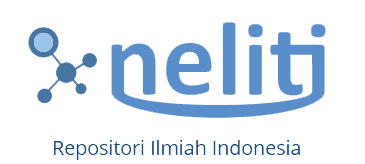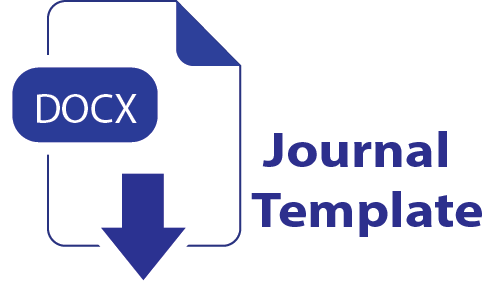GAYA KEPEMIMPINAN DAN DISIPLIN KERJA TERHADAP KINERJA ANGGOTA POLRI DAN ASN DI DITRESKRIMUM POLDA SUMSEL
DOI:
https://doi.org/10.35908/jeg.v4i2.753Abstract
This study aims to determine: (1) Effect of leadership style on the performance of National Police and ASN Members Ditreskrimum of North Sumatra Regional Police. (2) The Effect of Work Discipline on the Performance of Members of the Police and ASN Ditreskrimum of the South Sumatra Regional Police. (3) Effect of leadership style and work discipline on the performance of National Police and ASN Members Ditreskrimum of North Sumatra Regional Police. This study is categorized as a quantitative associative causal study with an instrument in the form of a questionnaire. The population in this study were 132 members of the National Police and South Sumatra Regional Police ASN. Sampling technique using Sampling Proposal. The sample in this study was to take a population or as many as 132 samples. Data collection using questionnaires and interviews. Test the validity of the instrument using Confirmatory Factor Analysis, while the reliability test uses Cronbach Alpha. The measuring instrument proved to be valid and reliable for research instruments. Multiple regression analysis is used to test the hypothesis of this study. The results of the study found that: (1) Leadership Style had a positive and significant effect on the performance of Polri and ASN Members Ditreskrimum of North Sumatra Regional Police using the t test that t counted 6.499> with t table 1.993 with a significance of 0.00 <0.05, Contributing leadership style to the performance of National Police and ASN Members Ditreskrimum of North Sumatra Regional Police is 50%. (2) Work discipline has a significant positive effect on the performance of National Police and ASN Members Ditreskrimum South Sumatra Police using t test that t count 4.021> with t table 1.993 with a significance of 0.025 <0.05, Contribution of work discipline to the performance of National Police and ASN Members Ditreskrimum Polda Sumsel by 25%. (3) Leadership style and work discipline have a positive and significant effect on the performance of National Police and ASN Members Ditreskrimum South Sumatra Police using the F test that F count 9.980> with F table 1993 with significance 0.04 <0.05, Contributions of leadership style and work discipline to explain performance Members of the Indonesian National Police and ASN Ditreskrimum Sumsel Polda amounted to 40%.
 Keywords: Leadership Style, Work Discipline, Employee Performance
References
Arikunto,Suharsimi. (2010). Manajemen Penelitian. Jakarta: Rineka Cipta.
Arlans I Wayan Arta. 2012. Pengaruh Kepemimpinan, Disiplin dan Lingkungan Kerja terhadap Kinerja Karyawan. Jurnal Perhotelan dan Pariwisata, Agustus 2012 Vol 2 No. 1 Hal 66 – 79.
Cong, N. N., & Van, D. N. (2013). Effects of Motivation and Job satisfaction on Employees' Performance at Petrovietnam Nghe An Construction Joints Stock Corporation (PVNC). International Journal of Business and Social Science,4(6).
Dharmawan, I. Made Yusa. Pengaruh Kompensasi dan Lingkungan Kerja Non Fisik terhadap Disiplin dan Kinerja Kar-yawan Hotel Nikki Denpasar. 2011. PhD Thesis. Tesis, Pasca Sarjana Universitas Udayana Bali.
Ghazali, Imam. 2009. Aplikasi Analisis Multivariate dengan Program SPSS , Edisi Keempat, Penerbit Universitas Diponegoro.
Firdaus, Zamzam Fakhry, 2018 Aplikasi Metodologi, Yogyakarta, Penerbit deepublish
Gibson, James, et al. (1996). Organisasi Perilaku, Struktur, dan Proses. (Alih Bahasa: Nunuk Adiarni). Jakarta: Binarupa Aksara.
Harlie, M. (2012). Pengaruh Disiplin Kerja, Motivasi dan Pengembangan Karier terhadap Kinerja PNS pada PemKab Tabalong di Tanjung Kalimantan Selatan. Jurnal Aplikasi Manajemen Vol. 10, No. 4, Desember 2012: 860 – 867.
Handoko, Hani T. 2010. Manajemen Personalia dan Sumber Daya Manusia. Yogyakarta : BPFE.
Hasibuan, Malayu, S.P. 2012. Manajemen Sumber Daya Manusia. Edisi Revisi : PT. Bumi Aksara. Jakarta.
Hermawati, S. (2012). Pengaruh Kemampuan, Kepuasan, dan Disiplin Kerja Terhadap Kinerja Pegawai di Lingkungan Kecamatan Kayen Kabupaten Pati(Doctoral dissertation, Universitas Muria kudus).
Hidayat,. dkk. (2005). Pengaruh Motivasi Kerja, Kemampuan Kerja, dan Gaya Kepemimpinan terhadap Kinerja Karyawan pada Badan Kesatuan Bangsa dan Perlindungan Masyarakat Propinsi Jawa Tengah. Jurnal Ilmu Administrasi dan Kebijakan Publik, Vol. 3, No. 1, Januari 2006: 89 – 97.
Karami, A., Dolatabadi, H. R., & Rajaeepour, S. (2013). Analyzing the effectiveness of reward management system on employee performance through the mediating role of employee motivation case study: Isfahan Regional Electric Company. International Journal of Academic Research in Business and Social Sciences, 3(9), 327.
Mariam, Rani. (2009). Pengaruh Gaya Kepemimpinan dan Budaya Organisasi terhadap Kinerja Karyawan Melalui Kepuasan Kerja Karyawan sebagai Variabel Intervening. Tesis: Program Studi Magister Manajemen Program Pasca Sarjana Universitas Diponegoro.
Mas’ud, Fuad (2004). Survey Diagnosis Organizational. Semarang; UNDIP.
Mathis, Robbert L dan Jakckson, John H. 2012. Manajemen Sumber Daya Manusia. Yogyakarta ; Salemba Empat.
Maharani, Intan Ratna dan Rahmawati, Siti.2010. Pengaruh penerapan Disiplin Kerja terhadap prestasi kerja pegawai Dinas Pendidikan Kabupaten Ciamis. Vol 11 No. 3. Jurnal Manajemen dan Organisasi. Hal. 191 – 202.
Mangkunegara, Anwar P. 2009. Evaluasi Kinerja Sumber Daya Manusia. Bandung; PT. Refika Aditama.
Patiran, Andarias. (2010). Analisis Faktor – Faktor yang Mempengaruhi Kinerja Pegawai Negeri Sipil (PNS). Jurnal Fokus Ekonomi, Vol. 5, No. 2, Desember 2010 : 32 – 43.
Ranupandojo, Heidjrahman dan Suad Husnan. (1984). Manajemen Personalia, Edisi Ketiga. Yogyakarta; BPFE UGM.
Robbins, Stephen, P. 2009. Prinsip –prinsip Perilaku Organisasi, Jakarta. Erlangga.
Rivai, Veithzal. 2011. Manajemen Sumber Daya Manusia Untuk Perusahaan Dari Teori ke Praktek. Jakarta ; PT. Raja Grafindo Persada.
Sedarmayanti. 2011. Sumber Daya Manusia dan Produktifitas Kerja. Bandung. CV. Mandar Maju
Setyawan, Budi & Waridin (2006). Pengaruh Disiplin Kerja Karyawan dan Budaya Organisasi terhadap Kinerja di Divisi Radiologi RSUP dr. Kariadi. Semarang. JRBI. Vol 2. No. 2. Hal. 181 – 198.
Suranata, Sri (2002). Dampak Motovasi karyawan pada hubungan antara Gaya Kepemimpinan dengan Kinerja Karyawan perusahaan Bisnis. Jurnal, Empirika, Vol : 15(2), Desember : 116 – 138.
Simamora, Bilson. 2008. Panduan Riset Perilaku Konsumen. Jakarta. PT. Gramedia Pustaka Utama.
Suradinata, Ermaya. 2007. Pemimpin dan Kepemimpinan Pemerintah, Pendekatan Budaya, Moral dan Etika. Gramedia, Jakarta.
Suprayitno. 2007. Pengaruh Disiplin Kerja, Lingkungan Kerja Dan Motivasi Kerja Terhadap Kinerja Karyawan. Vol 2 No.1. Jurnal Manajemen Sumber Daya Manusia. Hal. 23 – 34.
Siagian, Sondang P, 2009. Manajemen Sumber Daya Manusia, Cetakan Ketujuh, Jakarta; Radar jaya Offset.
Sutrisno, Edy. (2010). Manajemen Sumber Daya Manusia. Jakarta: PT. Prenada Media Group.
Suprihatiningrum, H. & Tri, B. (2012). Faktor-faktor yang Mempengaruhi Prestasi Kerja (Studi pada Karyawan Kantor Kementrian Agama Provinsi Jawa Tengah). Jurnal Manajemen, 1-22.
Sugiyono. (2008). Metode Penelitian Kunatitatif Kualitatif dan R&D. Bandung: Alfabeta.
Suryana, M.Si. "Metodologi Penelitian." Jakarta. PT Raja Grafindo Persada(1995).
Umar, Husein, 2003. Riset Pemasaran dan Perilaku Konsumen Jakarta. PT. Gramedia.
Yun, S., Riki, T., & Wei, L. (2007). Employee Self-Enhancement Motives and Job Performance Behaviors: Investigating the Moderating Effects of Employee Role Ambiguity and Managerial Perceptions of Employee Commitment. Journal of Applied Psychology, 92(3), 745-756.
Zamzam, Fakhry, Havis Aravik, 2016. Manajemen SDM Berbasis Syariah, Bogor: CV. RWTC Success
Zamzam, Fakhry, 2015, Teknik Dasar Penulisan Proposal Tesis, Palembang, Penerbit Noerfikri
Downloads
Published
How to Cite
Issue
Section
License
Authors who publish with this journal agree to the following terms:
- Authors retain copyright and grant the journal right of first publication with the work simultaneously licensed under a Creative Commons Attribution License   that allows others to share the work with an acknowledgement of the work's authorship and initial publication in this journal.
- Authors are able to enter into separate, additional contractual arrangements for the non-exclusive distribution of the journal's published version of the work (e.g., post it to an institutional repository or publish it in a book), with an acknowledgement of its initial publication in this journal.
- Authors are permitted and encouraged to post their work online (e.g., in institutional repositories or on their website) prior to and during the submission process, as it can lead to productive exchanges, as well as earlier and greater citation of published work










